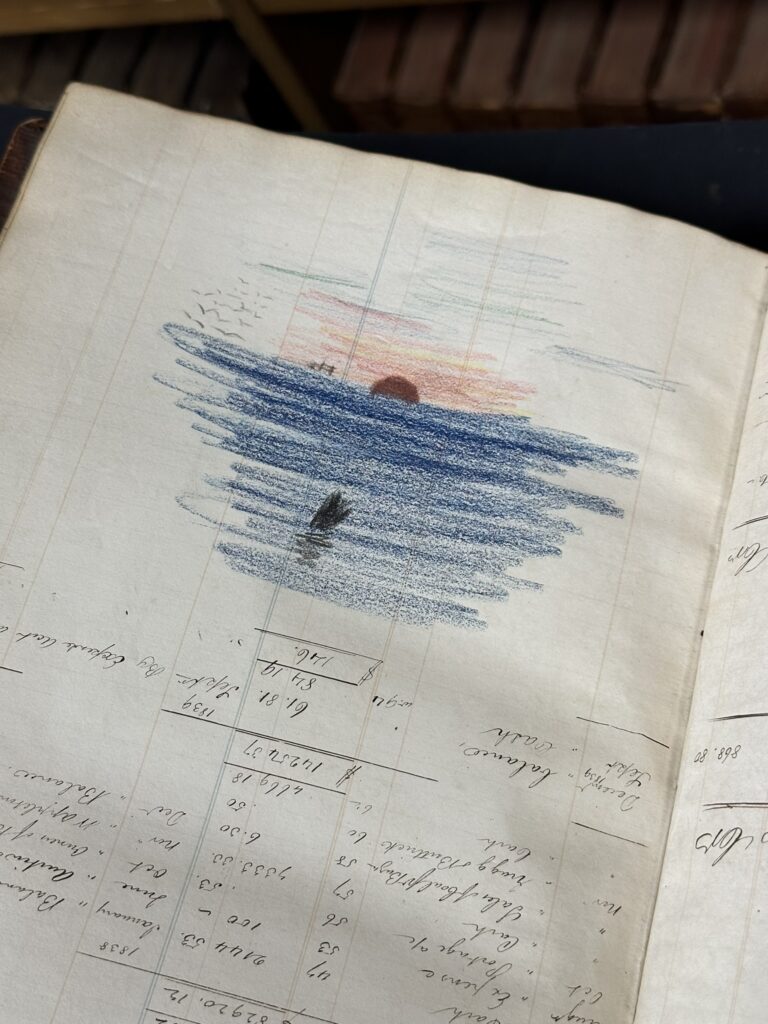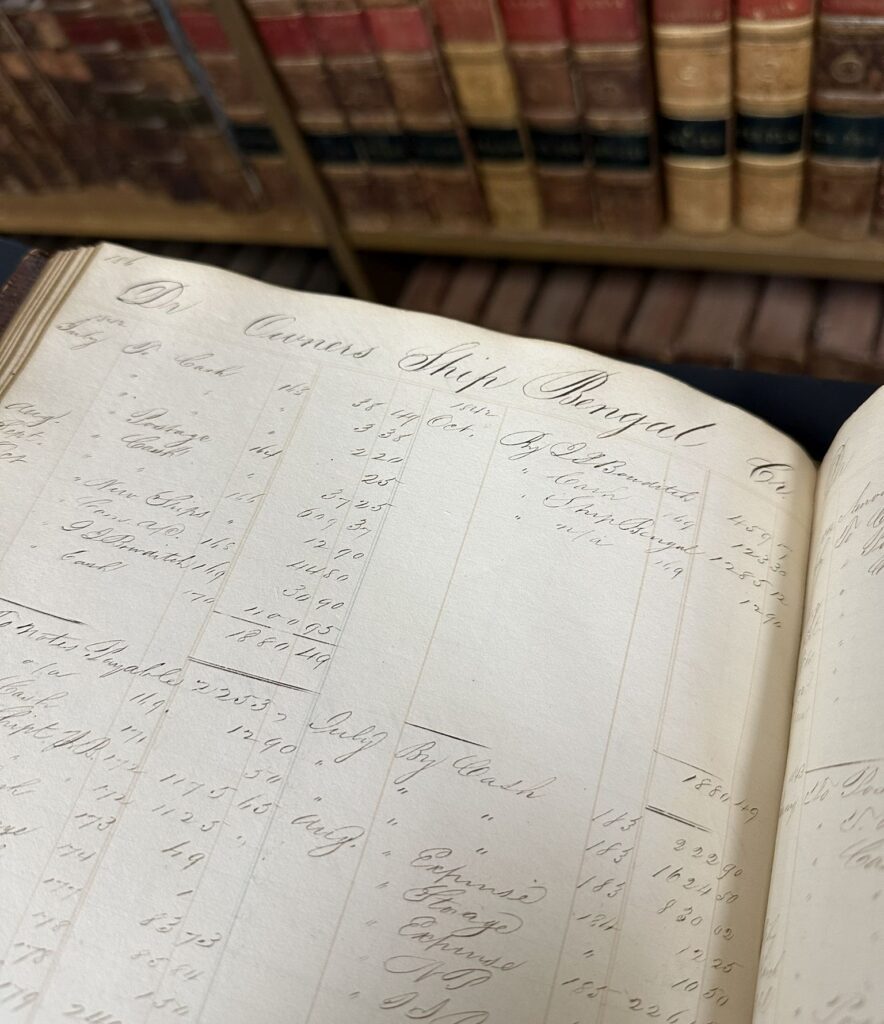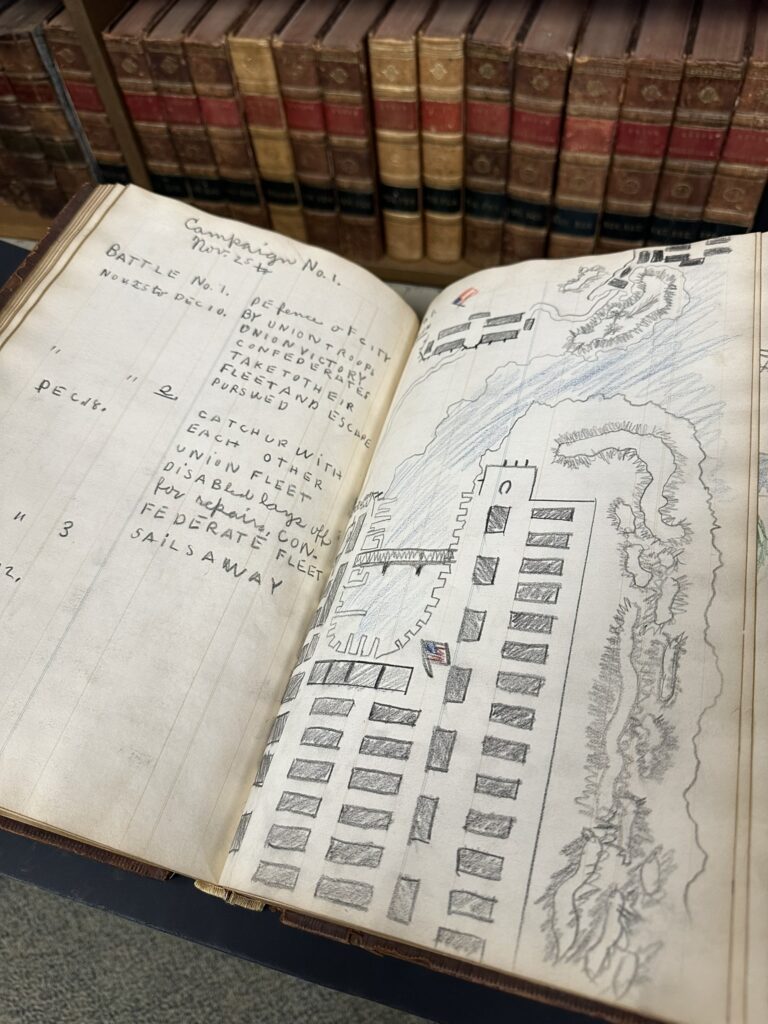By George Drake

The word “ledger” calls to mind neat columns of numbers and meticulous recordkeeping. But what happens when a ledger stops being used for its intended purpose? Winterthur Library recently acquired a William Appleton and Company ledger, which gives insights into the global reach of a 19th-century Boston-based merchant shipping company and the life and times of the man whose name was at the top of the company’s masthead. It’s interesting enough as a record, but this volume is also exciting because it illustrates what can happen when a ledger that’s no longer used by the company falls, decades later, into the hands of a child who needed a scrapbook and sketchpad.
William Appleton (1786–1862) was a businessman and politician from Massachusetts, whose business acumen was clear early in life. In 1801 his first foray into business was as a clerk in a store in Temple, N.H., kept by Mr. Artemas Wheeler. Appleton made such a favorable impression on his employer that at the age of 19 he was made a partner.
Between 1807 and the 1820s, Appleton engaged in a variety of business ventures related to his mercantile interests, including the purchase of some of his earliest ships. From 1826 to 1841, he owned a counting house in Boston, Mass. In 1841 he and his son James joined Samuel Hooper to form William Appleton and Company, a merchant shipping firm which engaged in sea trade to ports around the world.

Detail of a page noting expenses on a ship bound for Bengal, India.
The Appleton ledger—a large, leather-bound volume detailing transactions between 1836 and 1843—records Appleton’s rise from a small business owner to a titan of Boston commerce. Many of its pages contain balance sheets for company transactions, either with individuals or other companies (for example, an 1838 transaction with the Liverpool Packet Co. in the amount of $54,143.16—the equivalent of almost $2 million in 2024). Some entries record transactions related to shipping logistics, including a payment of $6,560 (over $200,000 in 2024) for insurance on the Eben Preble, a 439-ton Appleton-owned ship bound for China.
Some entries contain balance sheets for domestic and international shipments, including several entries related to shipments made to New Orleans, La., in consignment with Hodge, Oxnard & Co. International destinations with similar entries include Calcutta, Havana, China, and Liverpool.
The last ledger entry in this roughly 200-page volume was made in 1843, with the business records comprising roughly one-third of the pages. Given that William Appleton and Company continued for several years after 1843, it’s unclear why it was abandoned with two-thirds of the book’s pages unused. Whatever happened, the ledger came into use years later by one or more people for an entirely different purpose.
